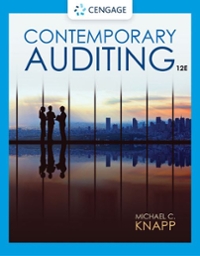Michael Barnes, Buranello's general manager, was just as frustrated by the cash shortages as his boss, Marta
Question:
Michael Barnes, Buranello's general manager, was just as frustrated by the cash shortages as his boss, Marta Giordano. Barnes had worked at Buranello's for more than 20 years and was practically a member of the Giordano family. His first position with the restaurant was as a busboy when he was 14 years old. During college, he worked as a waiter at the restaurant. When he graduated from Northeastern University with a management degree, Barnes turned down an offer from Giordano to become a member of Buranello's management staff, choosing instead to work for a large, nationally franchised restaurant chain that had an extensive management trainee program. Five years later, though, Barnes returned to Buranello's when Giordano offered him the position of general manager.
Barnes eventually called a meeting of the restaurant's management staff-himself, three shift managers, three assistant managers, and the chef-to address the cash shortages being experienced by Buranello's. At the meeting, which Giordano also attended, Barnes informed his subordinates that the cash shortages were becoming larger and more frequent. He pledged that he would catch the culprit or culprits and prosecute them to the fullest extent of the law. Barnes did not discuss specific measures that he planned to take to determine the source of the cash shortages. Why? Because he suspected that the thief was a member of the management staff. The prime suspect in Barnes' mind was Aaron O'Neil, one of the three shift managers.
Barnes rotates the work assignments for the shift managers so that each of them works the closing shift, which is from 3 p.m. to 11 p.m., only twice per week.2 Buranello's is closed on Sundays when it often hosts private parties such as family reunions and wedding receptions. One of the responsibilities of the shift manager at closing is to prepare the daily sales reconciliation. To perform this task, the shift manager completes one of the standard reconciliation templates used for that purpose within the restaurant industry. The final task of the closing shift manager each night is to prepare the bank deposit for that day's sales. The day's receipts, along with the completed deposit slip, are left overnight in the restaurant's safe. The following morning, the shift manager who opens the restaurant recounts the receipts, traces the resulting total to the deposit slip, and then takes both to Buranello's bank a few blocks away.
The purpose of the daily sales reconciliation is to reconcile the day's sales reflected by the cash register printout to the total cash and cash items in the cash register at the close of business. The final line item on the reconciliation worksheet is entitled "Variance." A negative variance reflects a cash shortage, while a positive variance indicates a cash overage. Similar to most restaurants and retail businesses, Buranello's typically has a modest cash shortage at the end of each business day.
After Buranello's began experiencing abnormally large cash shortages, Barnes engaged the business's accounting firm to analyze the restaurant's daily sales reconciliations.
The accounting firm attempted to correlate the cash shortages with the shifts worked by the management staff and the cashiers, but the results of that analysis were inconclusive.3 The accounting firm also attempted to determine whether the cash shortages were correlated with the presence of a specific shift manager during the closing shifts-Barnes believed that cash was most likely being stolen during the nightly closing procedures. Again, the results were inconclusive. There was no definite trend that linked the shortages to the closing shifts worked by specific shift managers. In Barnes' mind, the results of the accounting firm's analyses suggested that the thief or thieves were sufficiently clever to make it difficult for the cash shortages to be traced directly to them.
The only evidence that linked Aaron O'Neil to the cash shortages was the fact that they began occurring within a few weeks of the date that he began working at Buranello's. But there was another reason that Barnes suspected O'Neil. During the 20 years prior to accepting a position with Buranello's, O'Neil had been employed by seven different restaurants or restaurant chains. That unstable employment history had concerned Barnes when he interviewed him. The reference letters provided by O'Neil's former employers had also posed some degree of concern since they had been lukewarm, at best, in their endorsement of him. Despite the fact that O'Neil was a marginal job candidate, Barnes had hired him because Buranello's management team was chronically understaffed. Similar to most restaurants, management and employee turnover is a constant problem faced by Buranello's.
Questions
1. Identify internal control weaknesses evident in Buranello’s operations. What risks are posed by these internal control problems?
2. For each internal control weakness, you listed in responding to the previous question, identify a measure that Buranello’s could implement to remedy that weakness. Indicate whether these measures would be cost-effective.
3. Prepare a list of internal control procedures for a restaurant other than the controls referred to in this case. For each control that you list, identify its underlying objective.
4. Do you believe that Barnes’ plan to test Aaron O’Neil’s honesty was appropriate? Was it ethical? What ethical responsibilities does a business’s senior management or owner have when an employee is suspected of theft?
Step by Step Answer:






